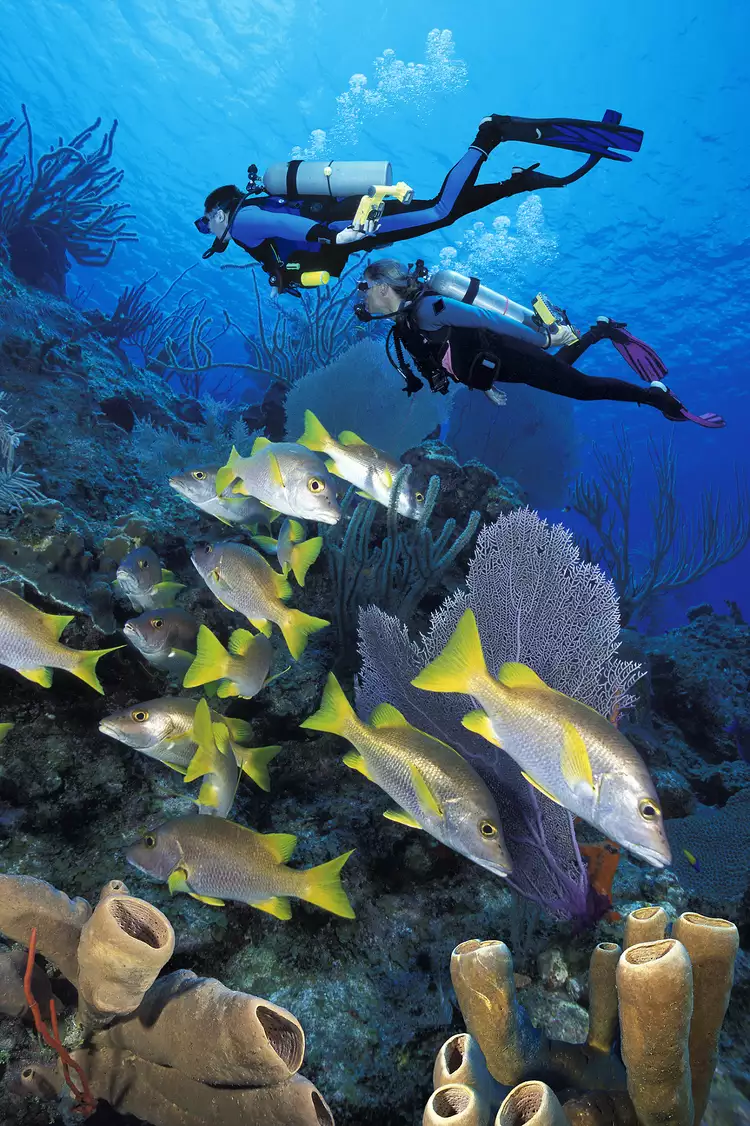Summary
How Many Minutes Can a Scuba Diver Stay Underwater With a Single Tank of Air?
How long does a scuba tank last? Although the question seems straightforward, the answer is not so simple. Let’s explore different scenarios that impact dive times.
An Average Diver, at an Average Depth, With an Average Tank
An average open-water certified diver utilizing a standard aluminum 80-cubic-foot tank on a 40-foot dive can expect to stay underwater for approximately 45 to 60 minutes. This allows for a safe reserve of air when it’s time to surface.
Three Factors That Determine How Long a Diver’s Air Will Last
1. Tank Volume
One of the most commonly used tanks in recreational diving is the aluminum 80, which contains 80 cubic feet of air compressed to 3000 pounds per square inch (PSI). However, scuba tanks come in various materials and sizes, catering to a range of diving needs. For deeper or longer dives, divers may opt for higher volume tanks. Conversely, petite divers, who may consume less air, might find smaller tanks more comfortable. All other factors being equal, a larger tank volume will generally extend bottom times.
2. Depth
As a scuba diver descends, surrounding water pressure increases. This rise in pressure does not compress the air within the scuba tank, given that it is already subjected to high pressure and is stored in a rigid container. However, the water pressure does compress the air flowing from the tank through the diver’s regulator. For instance, the air filling 1 cubic foot at the surface compresses to only fill ½ cubic foot at a depth of 33 feet. Consequently, a diver consumes air at a significantly faster rate at greater depths compared to at the surface.
3. Air Consumption Rate
A diver’s personal air consumption rate significantly influences how long the air in the tank will last. Individuals with a larger lung capacity (taller or larger divers) will consume more air than those with smaller lung volumes. Various factors affect this consumption rate, including level of exertion, stress, buoyancy control, and experience. Therefore, adopting relaxed, slow, and deep breathing techniques is the best approach to minimize air consumption.
Air Supply Is Not Always the Limiting Factor
In many instances, a diver may need to end the dive even before utilizing the entire air supply. Common reasons for this include reaching the no-decompression limit for the dive or needing to ascend with a buddy who has depleted their air supply. Each dive plan and site varies, meaning that the remaining air in a diver’s tank does not necessarily dictate how long they should remain underwater.
Conclusion
Ultimately, several variables govern how long a scuba tank will last for any given dive. This complexity is the reason answering the question isn’t straightforward. Effectively predicting the duration a tank will last underwater requires a solid grasp of the interplay between water pressure, tank volume, and individual air consumption rates.





